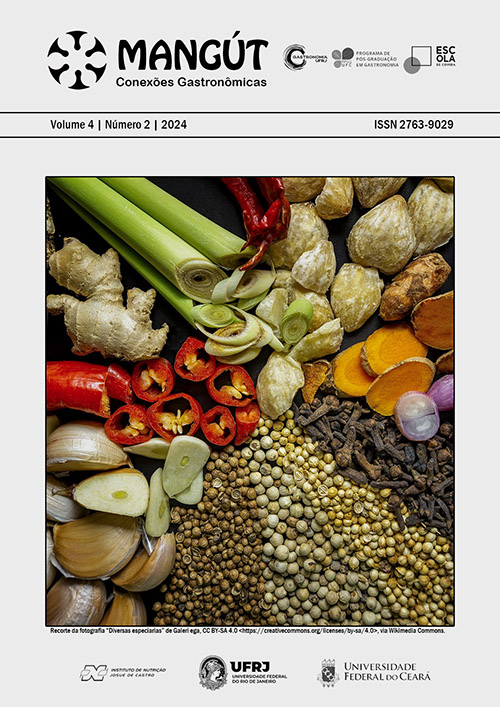Bachelor's degree in gastronomy: analysis by disciplinary thematic axes
DOI:
https://doi.org/10.70051/mangt.v4i2.65482Keywords:
Leaver, Feeding, Higher Education, GastronomyAbstract
This study analyzed the thematic axes of the bachelor’s degree programs in gastronomy offered by Brazilian federal public universities. The qualitative method initially involved a bibliographic survey and an exploratory documentary method using the Pedagogical Course Projects (PPCs). The study encompassed a total of five institutions. Although there is no specific national curricular guideline, the courses demonstrate a minimal alignment in offering mandatory and elective courses according to the identified thematic axes: i) Communication and Languages; ii) Management, Planning, and Entrepreneurship; iii) Gastronomic Practices and Techniques; iv) Education and Humanities; v) Food Science and Technology; and vi) Scientific Production in Gastronomy. The curricula reflect each institution’s effort to construct a pluralistic approach to gastronomy, adapted to their reality. However, there are limitations in the distribution and depth of each thematic axis. This study suggests the development of new research for more in-depth and specific analyses, aiming to detail the skills that the bachelor's degree in gastronomy intends to develop. The relevance of these studies lies in both the continuous improvement of the PPCs of gastronomy courses and the professional security of graduates in exploring various spaces in the job market. Notably, improvements in these distributions will enable graduates to have a broader and more secure vision of the spaces they can occupy, as well as a perspective on food as a transversal and multidisciplinary element.
Downloads
Published
Issue
Section
License
Copyright (c) 2024 Cássia Santos Amaral, Lucas Braga, Paulo Henrique Machado Sousa

This work is licensed under a Creative Commons Attribution 4.0 International License.
Autores que publicam nesta revista concordam com os seguintes termos:
- Autores mantém os direitos autorais e concedem à revista o direito de primeira publicação, com o trabalho simultaneamente licenciado sob a Licença Creative Commons Attribution que permite o compartilhamento do trabalho com reconhecimento da autoria e publicação inicial nesta revista.
- Autores têm autorização para assumir contratos adicionais separadamente, para distribuição não-exclusiva da versão do trabalho publicada nesta revista (ex.: publicar em repositório institucional ou como capítulo de livro), com reconhecimento de autoria e publicação inicial nesta revista.
- Autores têm permissão e são estimulados a publicar e distribuir seu trabalho online (ex.: em repositórios institucionais ou na sua página pessoal) a qualquer ponto antes ou durante o processo editorial, já que isso pode gerar alterações produtivas, bem como aumentar o impacto e a citação do trabalho publicado (Veja O Efeito do Acesso Livre).



